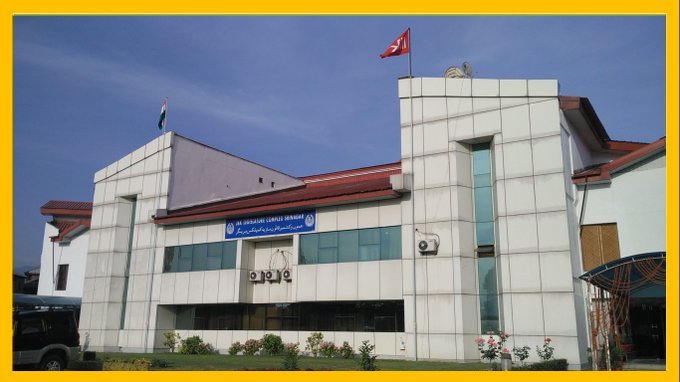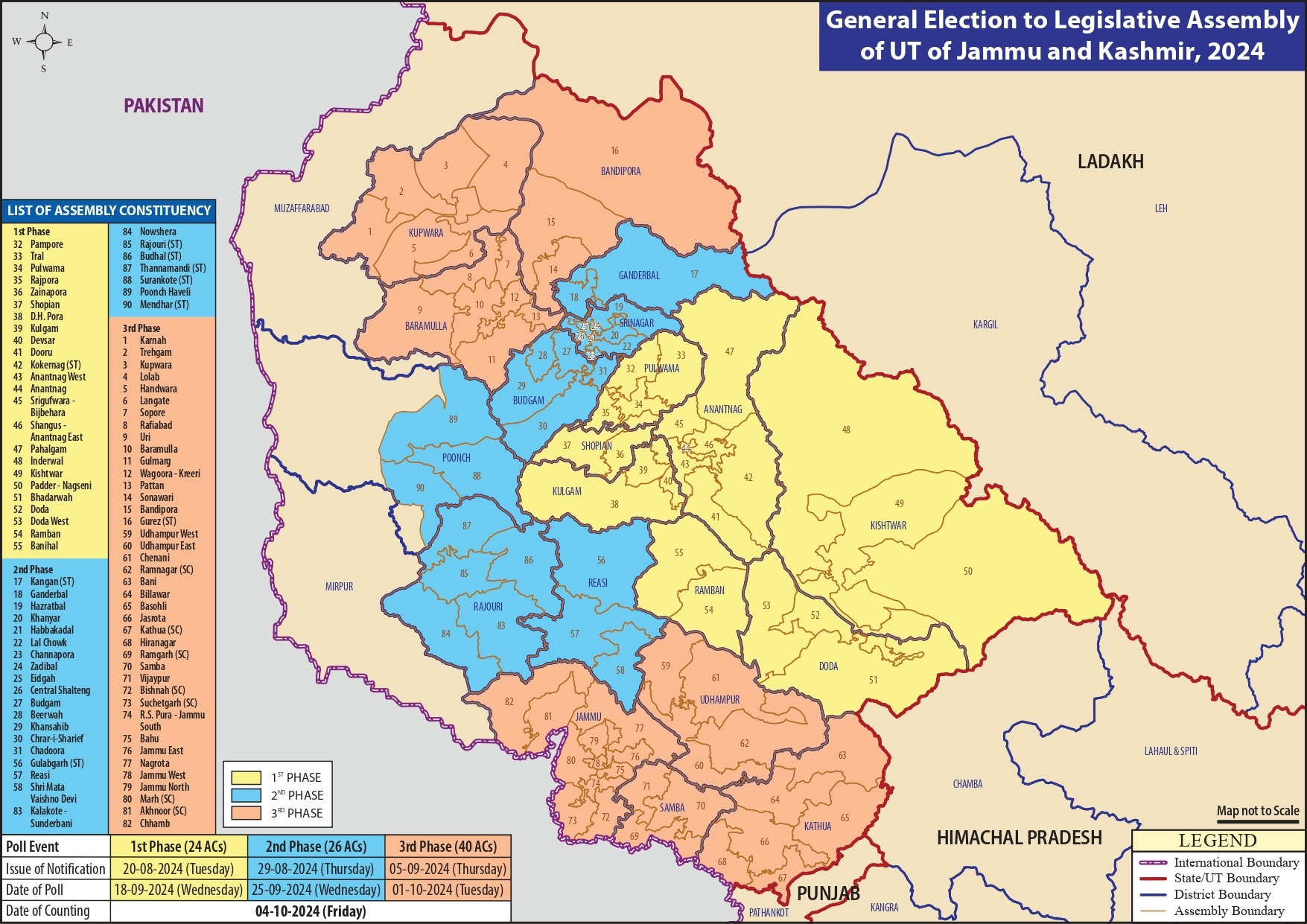
File photo of J&K Assembly
Assembly elections preparations in the Union Territory of Jammu & Kashmir (J&K) have entered into a decisive phase with the National Conference (NC), Congress, Communist Party of India -Marxist and National Panthers party coming to an electoral understanding under the INDI Alliance. The Bharatiya Janata Party (BJP), which is heavily banking on its support base in the Jammu region, is also making no stones unturned to take the fight to the logical conclusion. J&K is going to polls in 3 phases—September 18, 25 and October 1, 2024, for 90 Assembly seats.
Being the sensitive and strategic region, the three-phased Assembly elections in J&K would be held under heavy security bandobast. Before the announcement of the polling dates by the Election Commission of India, the administration there had transferred more than 200 officers, and a new Director General of Police was also appointed. The Central Government claimed it was prepared for any kind of violence and was making all efforts to conduct a peaceful Assembly Elections and hand over the power to an elected dispensation in J&K.
Elections to J&K are being held after nearly 10 years, and for the first time since the state was divided into union territories in 2019 when its special status under Article 370 was also abolished. The three-phase polling would witness a keen fight between the political parties to gain control of the region, with the National Conference and the People’s Democratic Party (PDP) attempting to wrest control, while the Congress and the BJP also playing an important part. However, the PDP supremo and former chief minister Mehbooba Mufti has decided against contesting the election but her daughter Iltija is making her poll debut from the family’s Bijbehara Assembly seat.
The obvious focus of this election would be the Kashmir valley which has come out of three decades of militancy to a semblance of normalcy. However, the new spate of militancy in the higher regions of the Jammu region poses a fresh challenge to the peaceful conduct of elections. Against this backdrop, it is interesting to see, how electoral alliances will be formed on the ground. As the elections approach closer, there may be a secret or tacit understanding between the groups and militias.
The first significant step towards this direction is the declaration of an alliance on Monday between the NC, (led by the father-son duo of Dr Farooq Abdullah and Omar Abdullah, both former chief ministers), the Congress and the CPM. It was formulated after a surprise visit by Congress president Mallikarjun Kharge and the Leader of the Opposition in the Lok Sabha, Rahul Gandhi, to the union territory.
The INDI Alliance sounds proper only on paper though, and not in reality. Because another regional party in the valley, the PDP led by former CM, Mehbooba Mufty is not part of the alliance. The PDP has been deliberately kept out of the alliance by the Abdullahs of NC because of local turf war and other political compulsions.
The Abdullahs managed to prevail on the Congress in keeping the PDP out of the alliance. The NC, besides its stronghold in the valley, has pockets of influence in the Jammu region too, where BJP has been holding total sway for the past decade. According to the deal, NC will contest 51 seats, Congress will vie for 32, while one seat each has been allocated to the CPM and the J&K National Panthers Party. They kept five seats vacant for “friendly contests” and accommodating small groups in the valley.
On the other side, the battle lines are clear in the Jammu region, which though has a Hindu majority but with a heterogeneous mix of population. The region has a BJP versus INDI Alliance contest on the cards. The Congress despite being organisationally weak and struggling to loosen the stranglehold of old-guard coterie to field new and credible faces, is the dominant partner of the INDI Alliance.
The Engineer Rashid phenomenon, in a surprise move he was able to file his nomination for the Baramulla Lok Sabha seat from Tihar jail, evoked public sympathy, particularly among the youth to defeat former CM Omar Abdullah, is the focus of debate in the political and social circles. Will this phenomenon replay in the Assembly elections which will be fought more on local than national issues? Moves are already afoot in this direction. Engineer Rashid’s nascent Awami Ittehad Party has already released the first list of its candidates, giving representation to parts of the valley other than north Kashmir which is his home ground and also contains his Assembly segment.
Another significant development which has the potential to spring an even bigger surprise and pose a bigger challenge to Dr Farooq Abdullah’s dominated opposition in Kashmir valley is the possibility of the separatist and hardcore Jamaat-e-Islami entering the election fray.
In this crossfire, this election would also determine the future of another former CM, Gulam Nabi Azad, who had walked out of the Congress Party to form his own political party, which is struggling to find a foothold in the region’s political arithmetic. Azad was the state’s last CM, and many consider him one of the best heads of government there.
*Senior journalist







